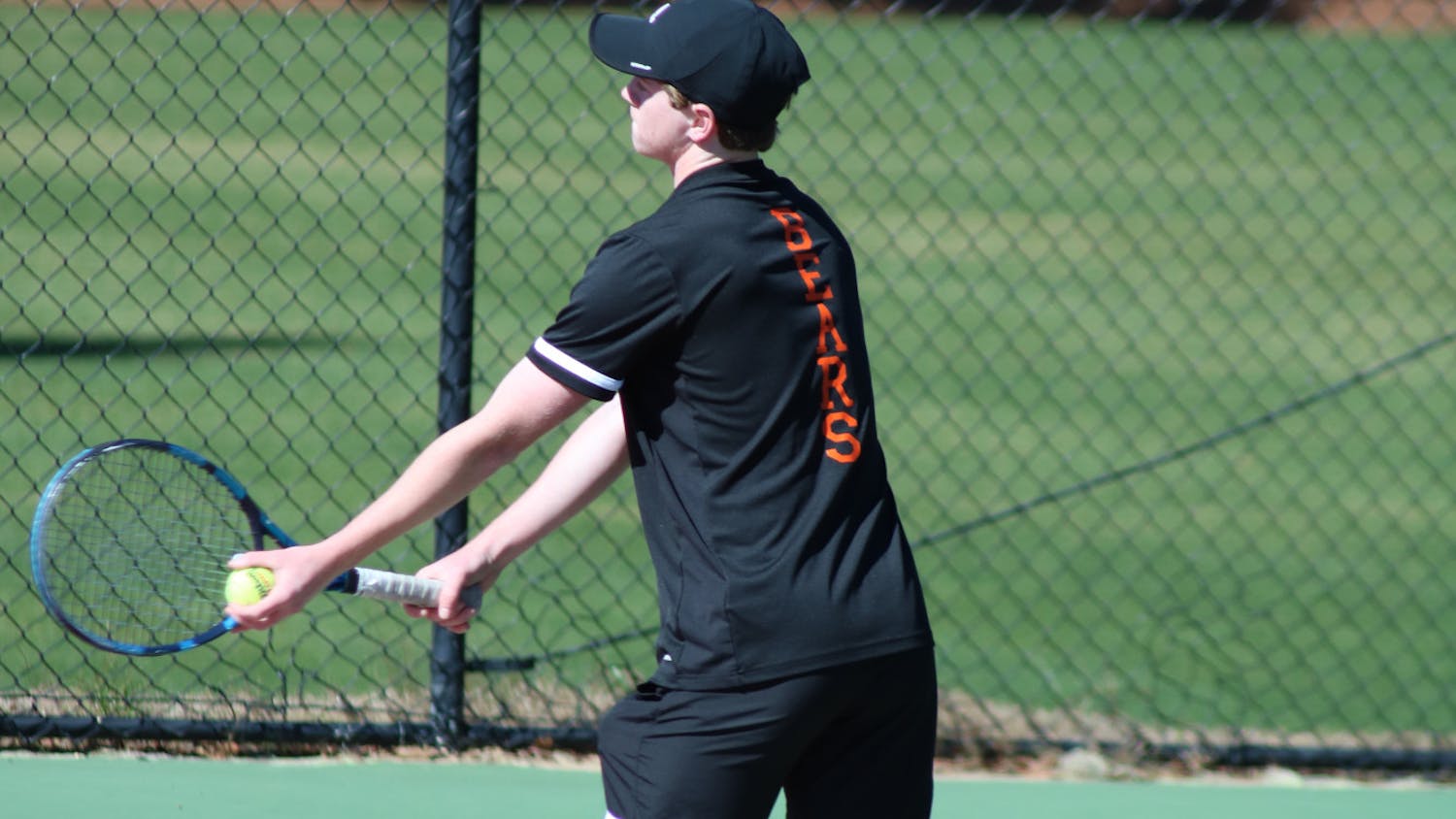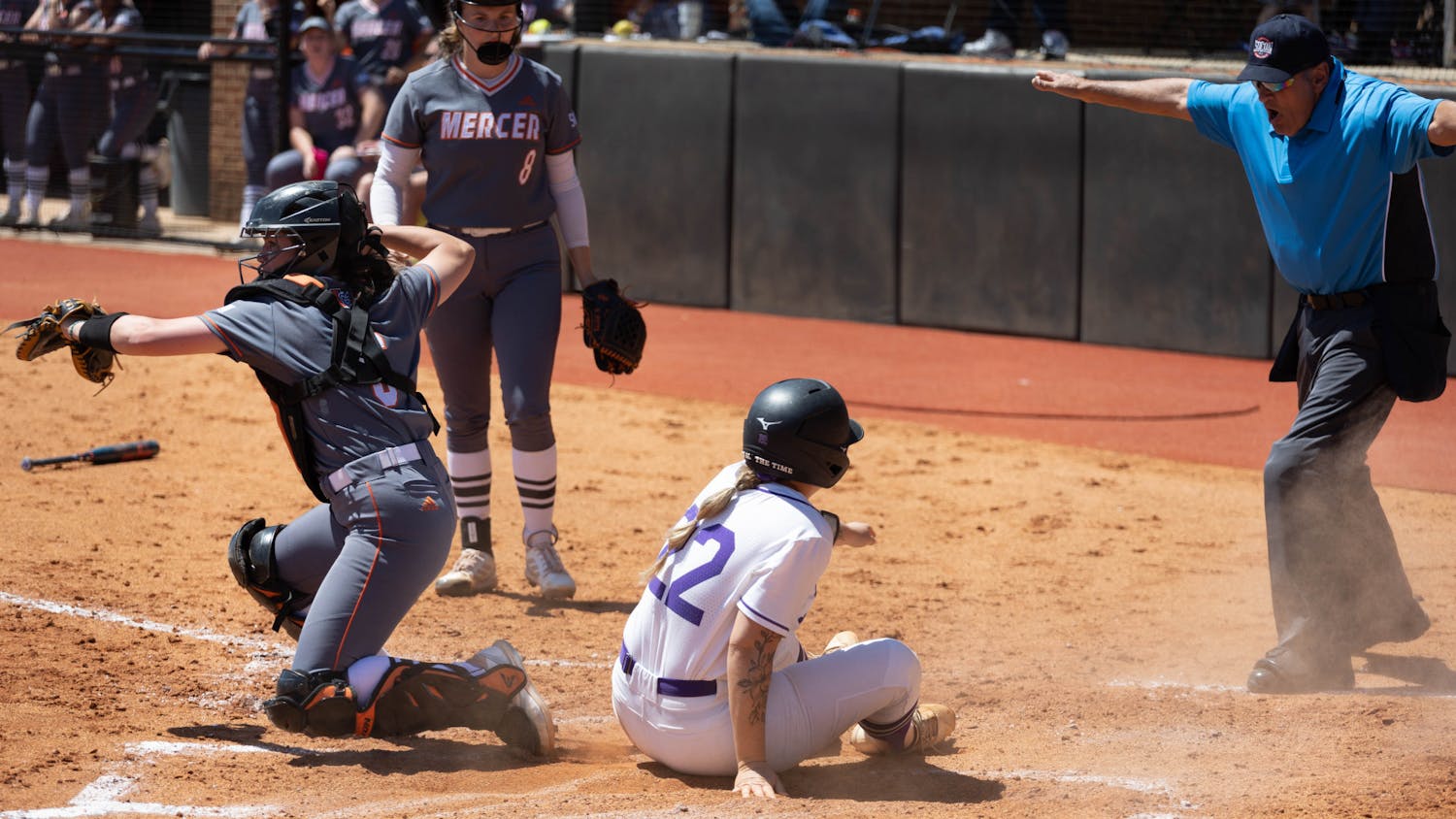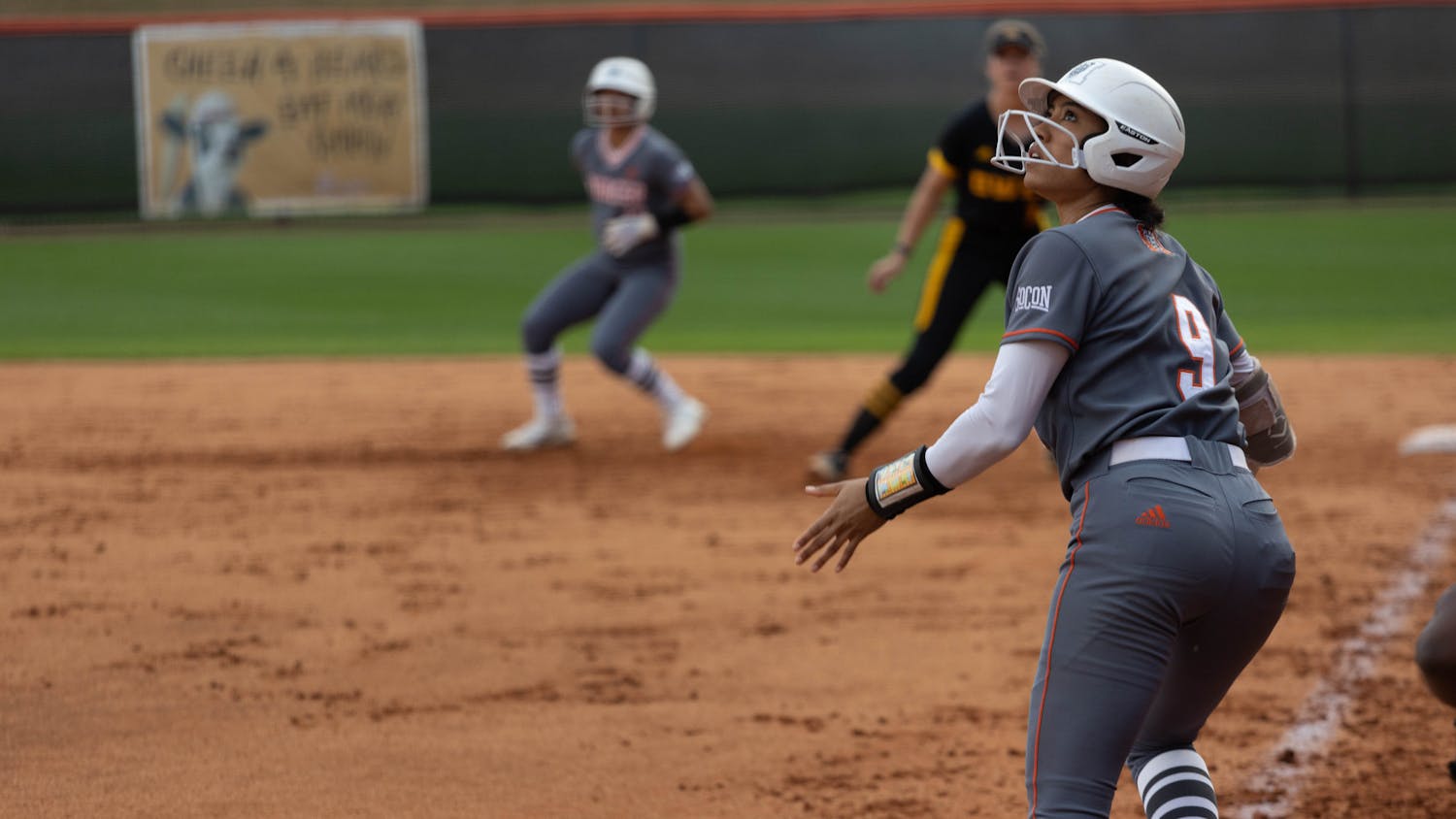Lauren Whyte was named the new assistant golf coach for Mercer women’s golf by head coach Michele Drinkard back in early August. Whyte joins the Bears after playing two years at Baylor and then two at Denver.
In the team’s press release on Whyte, Drinkard said she was “excited” for the addition of someone with “a wealth of playing experience and knowledge of the game" that would “provide guidance” for the team.
Whyte grew up in St. Andrews, Scotland, known as the home of golf, and has played the sport all her life.
“My parents just put (my brother and I) into a ton of sports,” Whyte said. “But golf was kind of the one I ended up just going with.”
Whyte said the support she received wasn’t just from family. It also came from the Scottish national system where she received training and experience from youth and amatuer tournaments. But once it came time to go to college Whyte decided to come to America.
“It's really common for a lot of the Europeans that want to get an education as kind of a backup plan while also pursuing their golf career to come over to the States just because of the weather, the facilities (and) the level of competition,” Whyte said.
Whyte’s first choice was Baylor University were she studied exercise physiology and after two years transferred to Denver University where she switched her studies to psychology. Whyte had a successful career at both Baylor and Denver and said she has memorable moments from both.
Her favorite moment at Baylor is freshman year where the team finished runner-up to Stanford for the national championship.
“My game came down to me against a girl called Lisa McGuire who is from Ireland, so it's kind of cool thing playing against someone from back home; and we went through I think six extra holes and I end up winning and that took us to the final,” Whyte said. “It was very close, very exciting and a national championship is a great experience.”
As for what drove Whyte to go into coaching rather than pursue a professional career was a want to make sure she was fully prepared to go pro and that she was going pro for the right reasons.
Whyte sees herself as being a player’s coach, a decision that was motivated by the mixed relationships that she had with her college coaches.
“So one of the big things I learned was just how much of an impact your coaches have on your life, [on] your schedule. They tell you what you're doing at practice, pick the tournaments for you, do a lot of things that as an amateur and as a junior you're used to doing yourself,” Whyte said. “And that can really make or break your college career. Your relationship with your coaches is a huge thing.”
Whyte credits her coaches at Denver and the change in “coaching attitudes” and “coaching mentalities” with helping her become happier and in turn improving her stroke count drastically. The relationship between Whyte and her coaches at Denver shaped how she would approach coaching.
“As an assistant I really wanted to be kind of like that bridge between players and head coach and just enhance that communication so if the girls are struggling with anything in life they feel comfortable to come and talk to their coaching staff and then we can help them,” she said.
Lauren Whyte: New Assistant Coach to Women’s Golf

New assistant golf coach for Mercer women’s golf, Lauryn Whyte. Photo provided by Mercer Athletics.




